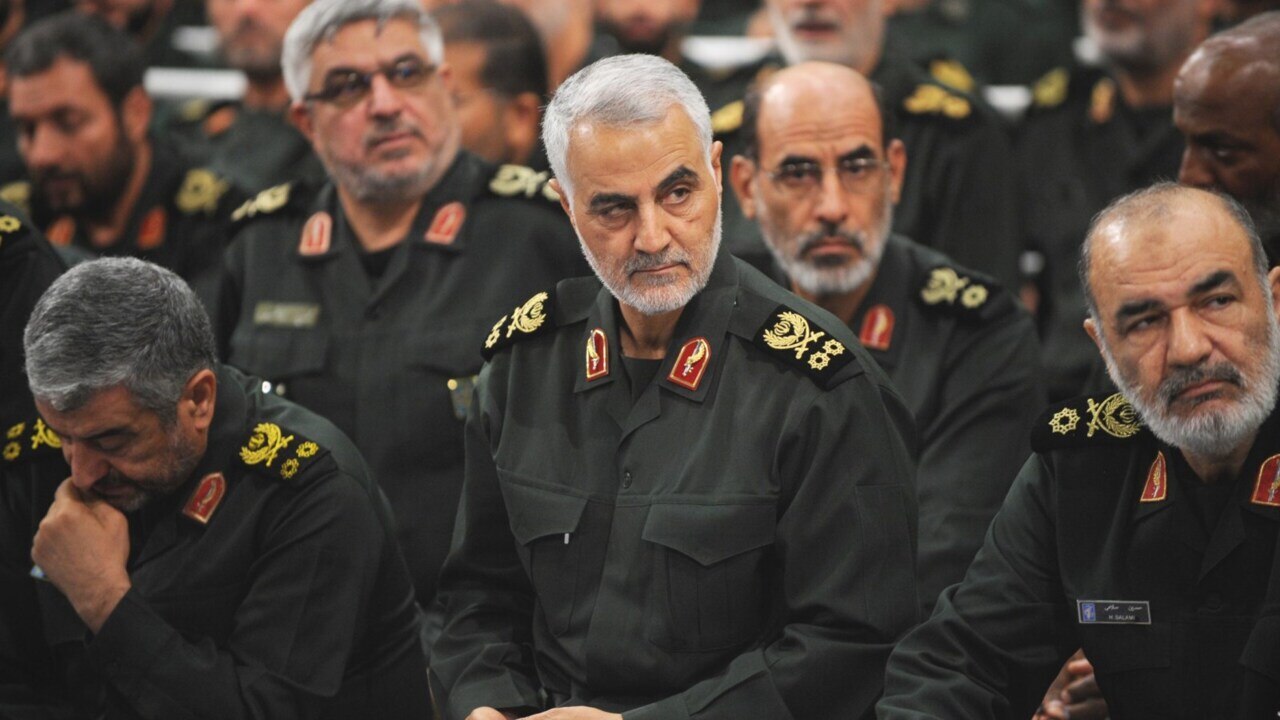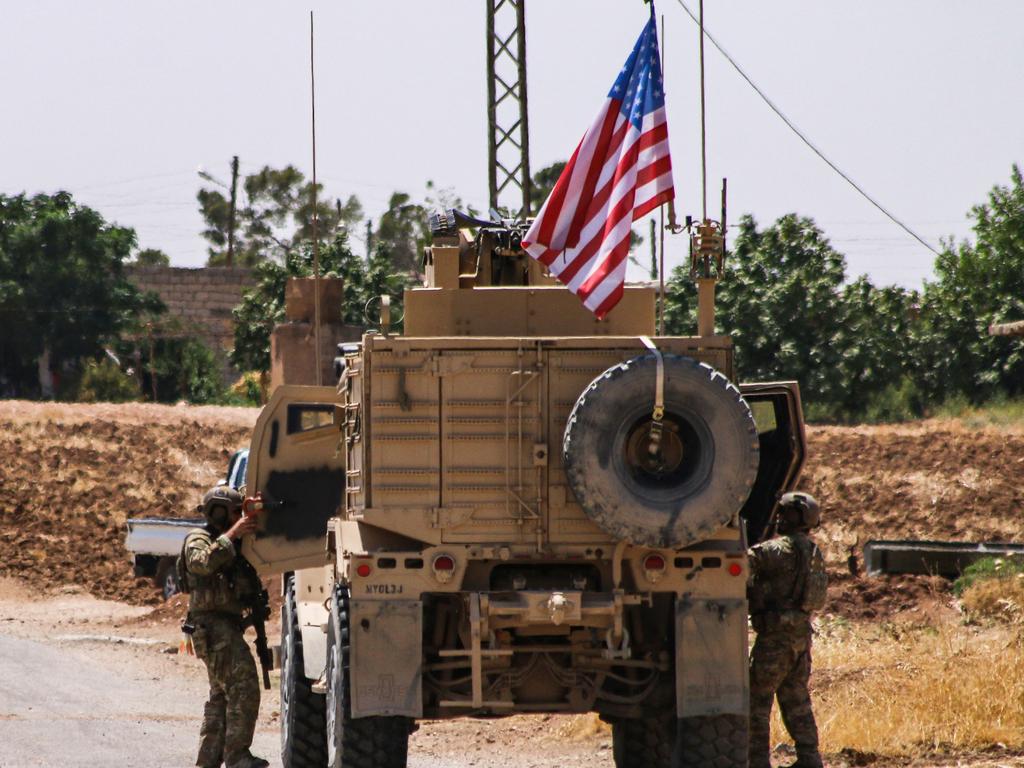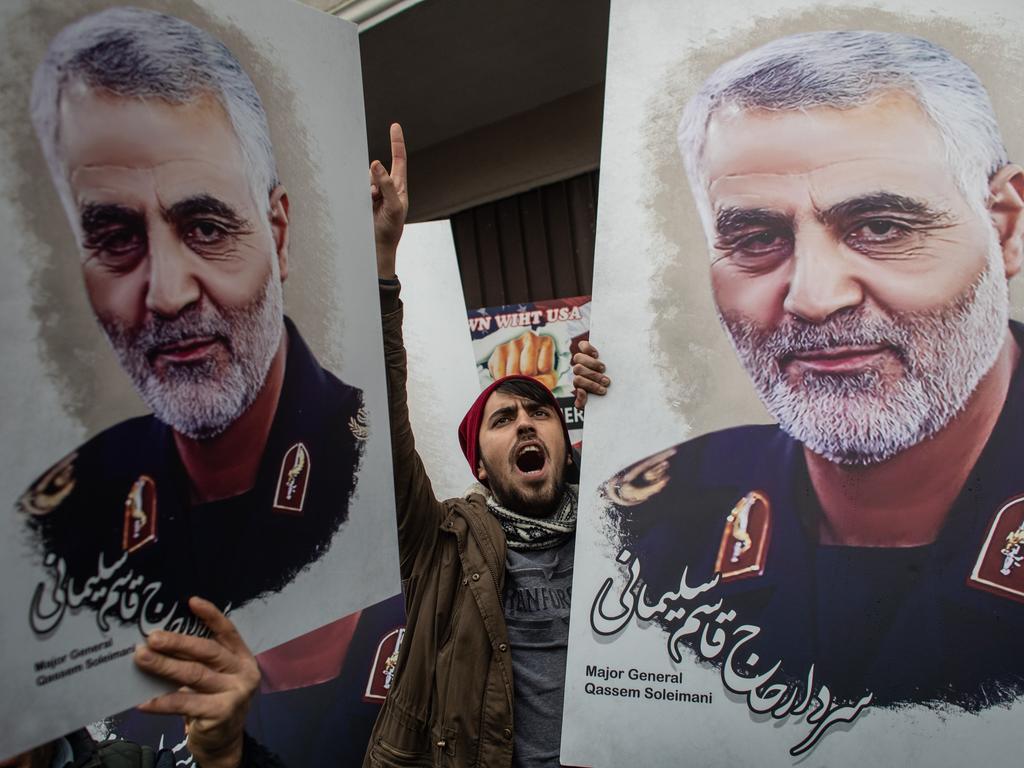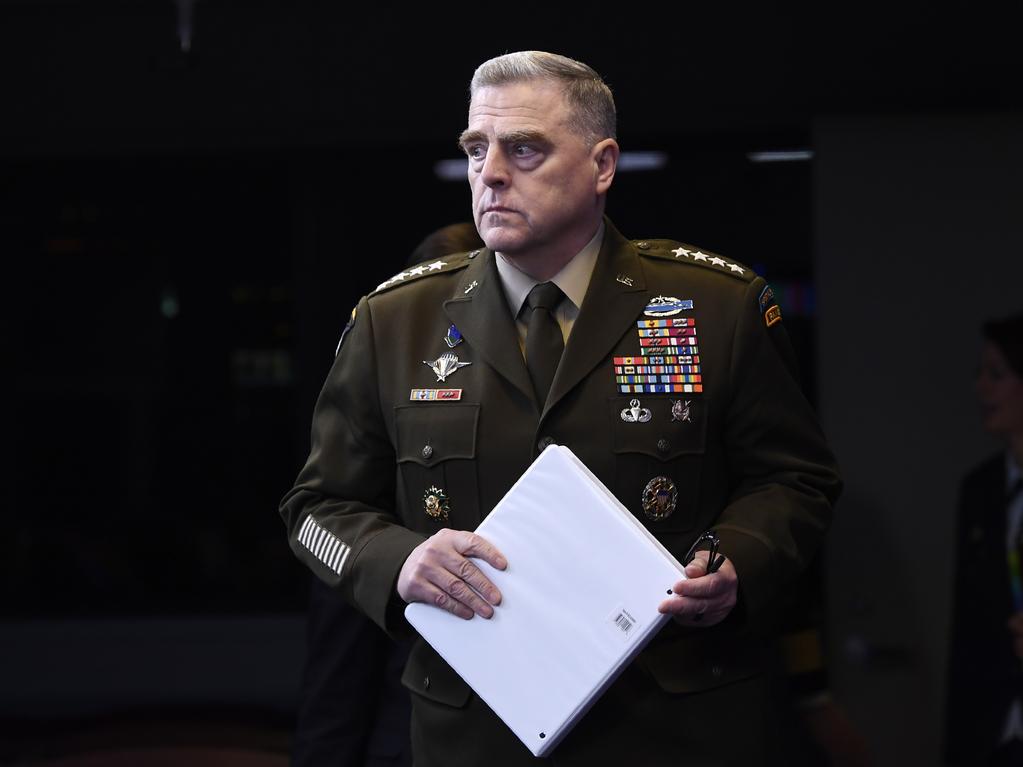Iran general Qassem Soleimani ‘days away’ from attack on Americans
Donald Trump has defended Qassem Soleimani’s assassination, saying US lives had been saved by killing a ‘monster’.

Donald Trump has strongly defended the assassination of Iran’s military leader, Major General Qassem Soleimani, saying many American lives had been saved by killing a “monster.”
His comments came as Defence Secretary Mark Esper said Gen Soleimani was only “days” away from masterminding an attack on Americans before he was killed in a US drone strike in Baghdad.
Mr Trump did not detail what sort of attack Gen Soleimani was planning except to say it was “a very big attack and a very bad attack” against the US.
“We saved a lot of lives – they were planning something … we had tremendous information,” Mr Trump said.
“He is a monster and he is no longer a monster, he is dead.”
US military leaders will give classified briefings to Congressional leaders on Thursday (AEDT) about the planned attack amid scepticism from the president’s opponents that the assassination was justified.
Mr Soleimani’s death has triggered enormous anti-US protests in Iran with that country’s leaders pledging to retaliate with an attack against Americans.

Mr Esper and Secretary of State Mike Pompeo both held press conferences in Washington as the Trump administration sought to defend its actions amid claims that the killing has brought the US closer to war with Iran.
Mr Trump said the US was ready to retaliate if Iran attacked.
“We are totally prepared and we are prepared to attack if we have to as retribution,” he said. “Ours was an attack based on what they did … they killed an American,” he said referring to an attack last week by Iranian militia on a base in Iraq that killed a US contractor.
Mr Trump also said the US had no plans to withdraw its 5000 troops from Iraq despite a vote in Iraq’s parliament this week calling for them to leave.
He said many Iraqis wanted the US to stay and that any withdrawal would allow Iran to dominate Iraq.
“Eventually we want to be able to let Iraq run its own affairs so at some point we want to get out but this isn’t the right point,” he said.
“If we leave, Iran would have a much larger foothold and the people of Iraq don’t want that … they don’t want to see Iran go into Iraq.”
Mr Esper confirmed the US would not be withdrawing its troops from Iraq and pointed out that the Iraq parliamentary vote was non-binding and that many Kurd and Sunni members of parliament who support the US presence did not take part in the vote.
Mr Trump played down his earlier claim that he would impose sanctions on Iraq if the US was forced to leave the country, but he said he expected Iraq to treat the US with respect and he again spoke of the large investments the US had made in its airports and infrastructure.
The president backed away from his earlier claims that in any conflict with Iran he was willing to attack targets of “cultural value.”
“They’re allowed to blow up everything that we have and there’s nothing that stops them,” Mr Trump said. “And we are, according to various laws, supposed to be very careful with their cultural heritage. And you know what, if that’s what the law is, I like to obey the law.”
Both Mr Esper and Mr Pompeo had played down Mr Trump’s threats amid concerns that any attack on historical monuments or cultural sites could be considered a war crime.
Democrat presidential candidates seized on the controversy surrounding Gen Soleimani’s assassination, with Democrat frontrunner Joe Biden calling on the president to explain what “imminent threat” justified the killing.
“Make no mistake, this outcome of strategic setbacks, heightened threats, chants of ‘death to America’ once more echoing across the Middle East, Iran and its allies vowing revenge — this was avoidable,” Mr Biden said.
“A president who says he wants to end endless war in the Middle East is bringing us dangerously close to starting a new one,” he said. “An administration that claims its actions have made Americans safer in the same breath urges them to leave Iraq because of increased danger.”

UK puts ships, helicopters on standby
Meanwhile, Britain has taken urgent measures to protect its troops in Iraq in case of any Iranian retaliation to Gen. Soleimani’s assassination.
British defence minister Ben Wallace told the House of Commons it was necessary to change the readiness of British forces, including 400 troops currently in Iraq and the warships HMS Montrose and the HMS Defender which are to accompany oil tankers through the Strait of Hormuz.
Mr Wallace, who called for all sides to de-escalate the tensions, said ships and helicopters were on standby in case the situation in the Middle East escalates.
Britain has been trying to tread a fine line of supporting the US action, saying the US acted in self defence because Soleimani was co-ordinating murder and attacks on US citizens, but also trying to defuse the tensions.
“Defence are changing the readiness of our forces – including helicopters and ships on standby to assist if the need arises,” he said.
“As part of prudent planning, a small team has been sent to the region to provide additional situational awareness and contingency planning assistance.”
Labour MP Chi Onwurah was critical of the Boris Johnson government’s unquestioning support of Mr Trump, but Mr Wallace denied this.
”Our support of the United States is not unquestioning at all,’’ Mr Wallace said.
“We talk to our allies a lot, indeed I said to my United States counterpart about being told in advance, and not being told in advance, I have those discussions. We are friends and allies but we are also critical friends and allies when it matters.’’
Britain has moved non-essential personnel away from Baghdad and towards Camp Taji in the north of the country where the Coalition forces, including Australian troops, have a major camp. Britain wants to keep its troops in Iraq, alongside the other coalition forces, but Mr Wallace said: “If they require us to leave, that is their right and we will respect it.”
Germany has also begun to withdraw some of its troops from Iraq.
Iranian news agency Tasnim reported that Iran has 13 ways to retaliate for Soleimani’s killing last Friday and claimed that the US was on high alert to prepare for any missile attacks.
The secretary of the supreme national security council, Ali Shamkhani said even the weakest of the 13 options would bring about an historic situation that would create a “nightmare for the Americans’’.
He said: “The 27 US bases that are closest to Iran’s border are already on high alert; they know that the response is likely to include medium-range & long-range missiles.”
Additional reporting: Jacquelin Magnay
Cameron Stewart is also US Contributor for Sky News Australia








To join the conversation, please log in. Don't have an account? Register
Join the conversation, you are commenting as Logout